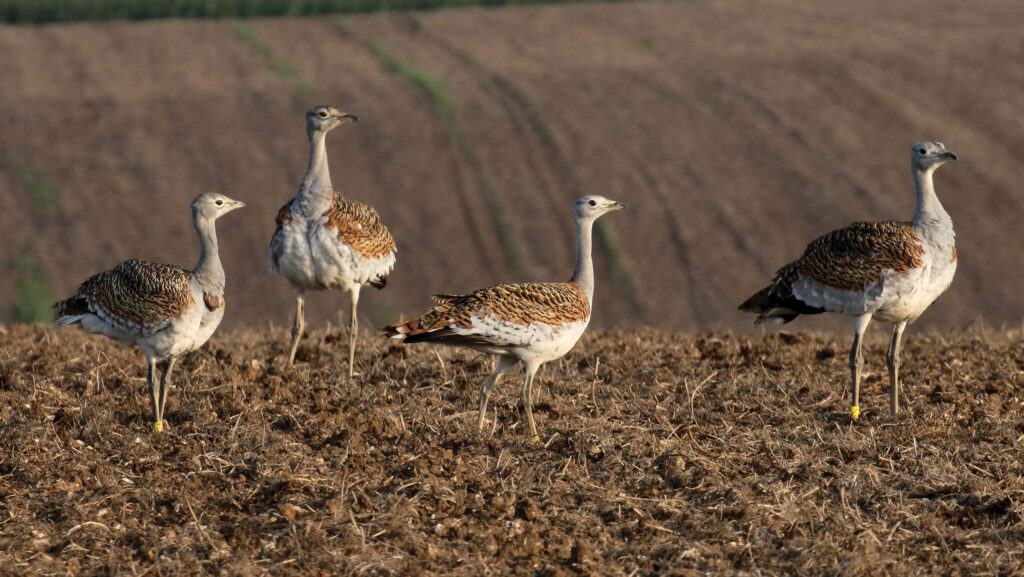Opinion: It isn’t a binary choice between farming and wildlife
 © Adobe Stock
© Adobe Stock I’ve never thought long and hard about the great bustard, but now is the time.
Rewilding enthusiasts have been celebrating news that farms in Wiltshire and Derbyshire are to be turned over to birds including the great bustard, chased off the grass over the centuries by agriculture.
The projects are changing farms to grassland rewilding, perfect habitat for scarce birds able to feast on seeds, plants and flowers and pick off small rodents and chicks.
See also: Opinion – harness the ‘overview effect’ in farming
I’m not an expert in rewilding, but what I can say is that nature is a good thing.
We have managed calcareous grassland on the farm through Tir Gofal and Glastir, we’ve been recognised by the RSPB for abundant birdlife on the farm, and are currently implementing biodiversity connectivity of sites of special scientific interest through habitat creation as part of a project we initiated.
Consistent work over 20 years has brought growth in biodiversity above and below ground.
We are also producing food through a closed nutrient loop, connecting with local communities, and bringing the human culture that is essential for agriculture.
More and more farmers are engaged with making farming sustainable – and bringing diversity back through the scale of collective activity is the drive of most policy.
The rewilding projects in Wiltshire and Derbyshire launch with great intent and no doubt there are committed environmentalists at the core who have a vision of a more balanced set of ecosystems (how farmers fit into this remains to be seen).
In new grassland plains such as these, as well as the great bustard, there may also be the chance of spotting the avaricious capitalist as well.
Not to say they exist in either of these projects, but a well-placed project at scale is potentially good not just for the flora and fauna but also for speculating city financiers who foresee a great asset in ready-to-go biodiversity net gain (BNG) projects.
Evidence submitted to the government’s environmental audit committee in 2023 suggested the BNG market could catalyse £16bn of investment into nature if allowed to develop.
Agriculture contributes £13.9bn each year to the UK economy. No doubt there are big appetites willing to take the risk on a few projects across the UK to get a share of that market.
Farmers are operating in a space that is vulnerable in market terms.
70 years of subsidy and effective protection is being removed by static or diminishing budgets and slow, haphazard policy implementation.
Farms will either rapidly evolve to the market or face stark alternatives, so it is clear why well-funded rewilding might be desirable for some.
Food security may be the rallying call, but that is not attractive to UK policymakers.
Supply chain management fits more neatly into a modern knowledge-based economy.
It would appear much easier to rely on others to produce food and hope for a quick fix in the case of a crisis rather than invest meaningfully in our own capacity year after year.
Whether rewilding schemes ultimately achieve gains for birds like the great bustard or the City we’ll need to wait and see.
My hope is that farmers and environmentalists can work together to create a more holistic approach to habitats, rather than the poorly framed binary choices between farms and wildlife that some rewilding projects present.

